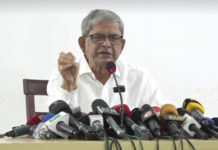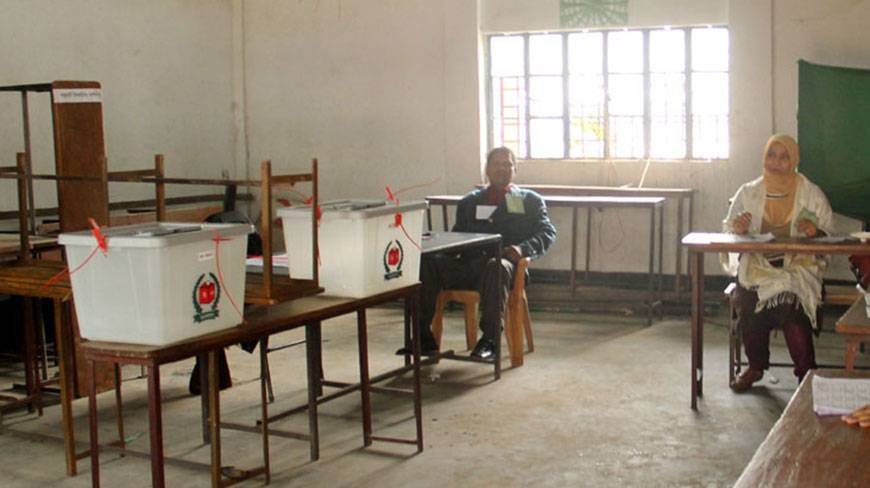No official protest of Aslam arrest

Leaders of Bangladesh Nationalist Party on Monday said the party did not believe in conspiracy or taking from help from others, outside of people’s mandate to bring a change in government.
The leaders came up with the statement when addressing a demonstration at the auditorium of Institution of Engineers, Bangladesh in the capital, to protest at the frequent cases and the recent charges brought against BNP chairperson Khaleda Zia.
The leaders informed the gathering that police did not give BNP permission to organise a protest rally in front of its central office at Nayapaltan.
Most of the party leaders, however, avoided any direct protest of the arrest of BNP joint secretary general Aslam Chowdhury on Sunday in the capital, for a supposed meeting with an Israeli politician, also an alleged agent of Israel intelligence agency Mossad, in India.
The party, till the filing of this report at 10pm, also did not issue any official statement against the arrest of Aslam Chowdhury.
However, at the days’ programme, some leaders alleged that the wives of the sons of prime minister, Sheikh Hasina, and her younger sister Sheikh Rehana, belonged to the Jewish community.
Addressing the protest rally, BNP secretary general Mirza Fakhrul Islam Alamgir said they did not believe in conspiracy or in joining hands with anybody, and that the party would instead restore people’s rights working alongside the people.
He said Khaleda Zia was not afraid of cases and the jail and urged the party leaders and activists to come together to strengthen the hand of the party chief and involve people in the current movement for democracy.
He said protests and demonstrations would have to be intensified on streets and not in an auditorium, through democratic and constitutional ways, and the organisational strength of the party needs to improve to this end.
The BNP stressed the need for forging national unity to build up resistance against the present ‘oppressive’ government and to force it to hold general elections under a neutral government.
He said cases against Khaleda Zia are ‘100 percent’ politically motivated and a conspiracy.
Fakhrul said cases and charge sheets were filed against Khaleda as they (ruling party) are afraid of her and want to keep Khaleda away from politics.
He said the ruling party knows it cannot continue in power by holding a rigged election if Khaleda stays out of it.
He said Awami League thinks that if BNP survives, this time they (AL) will be out of power not for 21 years, but 42 years.
Fakhrul urged the government to immediately take initiatives for consensus by creating an environment for discussions.
BNP standing committee member Moudud Ahmed said the major responsibility falls on BNP and Khaleda Zia to restore democracy.
He said change of government is a matter of time and it will definitely happen through election, which BNP will win.
He said politicians cannot be restrained with cases, rather it increases their popularity.
BNP senior joint secretary general Ruhul Kabir Rizvi was critical of the government for accusing the party’s joint secretary general Aslam Chowdhury of conspiring with Israel intelligence agency Mossad to overthrow the government.
He said India and Israel have diplomatic relations and the Indian government extended support to the present ‘unelected’ government of Bangladesh.
He asked how it was possible to hatch a conspiracy against Awami League government sitting on the soil of India.
He said apart from being a politician, Aslam is a big businessman and he has to visit various countries for work, adding, ‘when a political leader goes abroad for business it does not remain an issue for the party.’
BNP vice-chairman Shah Moazzem Hossain called on the Chief Justice to issue a suo moto rule to dissolve the present parliament.
Presided over by Dhaka city BNP convenor Mirza Abbas, also standing committee member, the gathering was also addressed among others by BNP leaders Hafiz Uddin Ahmed, Moazzem Hossain Alal, Khairul Kabir Khokon and Nazim Uddin Alam.
Source: New Age









